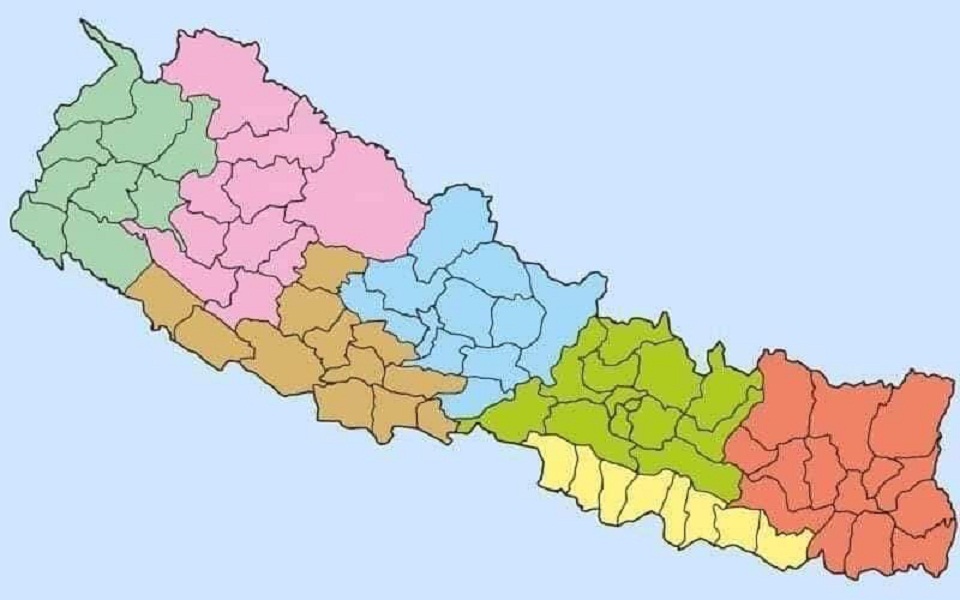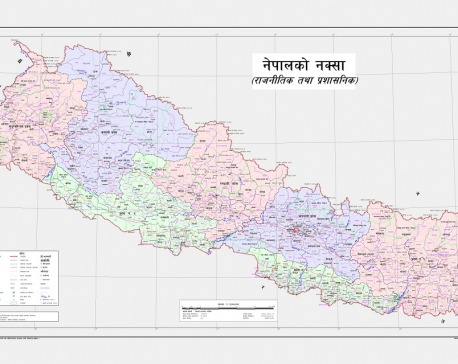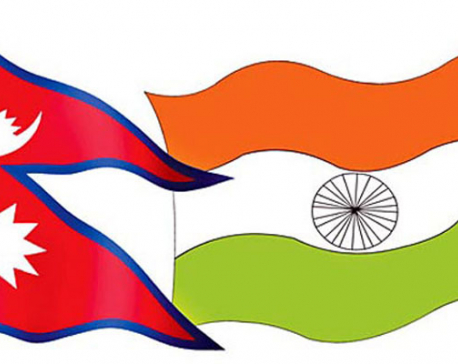
OR

We are standing against encroachment because we know that national sovereignty is inviolable, that nations may be big or small but they are equal in terms of national sovereignty.
The government of Nepal recently endorsed a new political map of Nepal by including the Limpiadhura region. This move came days after the government of India inaugurated a road linking India to Tibet of China through Lipulek, which forms part of the Limpiadhura region.
Nepal is clear that the region belongs to her where as India considers it a disputed territory. At this juncture, it will be worthwhile to revisit the past. The dispute over the Limpiadhura region has its roots in the 1960s. Part of the Indian contingent retreated to the region after suffering defeat at the hands of the Chinese at the India-China war over Arunachal Pradesh (the Chinese call it Aksai Chin) in 1962.
In course of time, India fortified her presence in the region that offered a vantage point from which they could keep a close watch on the Chinese. Repeated requests from the Nepali state to vacate the area fell on deaf ears.
Fast forward 2015. China and India reached a 40-point agreement to engage in bilateral trade through Lipulek. Nepal received a rude shock and wrote to both of her neighbors objecting to this move of signing a deal undermining Nepali sovereignty and territorial integrity. However, the move did not yield much.
The matter came to a head when India published a new political map incorporating the Limpiadhura region about six months ago. Protests erupted in Nepal against this move and the government of Nepal came under tremendous pressure to take up the matter with India, and inter alia, China.
Nepal has been reiterating that the occupation of her territory is against the Treaty of Sugauli, our own treaty of the Versailles that we were forced into signing with the British India after the Anglo-Nepal War of 1814-16 in which the British made a mockery of human rights and democracy by cutting off food and water supply lines to ill-equipped bands of Nepali troops and civilians fighting for their dear country against a mighty and unjust empire.
In the decades leading up to the Maoist insurgency, the Nepali state had presence in the Limpiadhura region. During and after the end of the insurgency, the state was hard to find in the region.
Apparently, this emboldened the aggressors further.
Despite a very weak presence in the region, Nepal has proof to substantiate that the land belongs to her, as per several media reports and interviews with concerned officials. Nepal has records of land tax that local inhabitants paid to the local land revenue office decades ago. Officials, who conducted population census in the region about 60 years ago, are still alive and talking to different media about the evolving standoff with India. Survey officials and scholars also point that Britain has maps ascertaining Nepali sovereignty over what India considers to be a disputed region.
Aside from India, there's one more party that we should keep talking to if we are to resolve this problem by keeping the matter within the neighborhood. That party is China. If bilateral and trilateral engagements fail to yield results, Nepal should have the courage to take the matter to international fora. Apart from the Limpiadhura region, Nepal has suffered encroachment upon swathes of her land along and close to her border with India, in the hills and the plains.
There's a need to reclaim all these territories through a sustained, well-coordinated and concerted
effort.
At this point, it will be timely to recall that the Army Chief of India has accused Nepal of acting as a proxy by taking up the Limpiadhura issue at the behest of 'someone else'. This remark is quite misleading and demeaning for the Nepalis, but we will not be misled either will we be cowed down.
We are standing for Nepal and not against any country. We don't feel we need support from one neighbor or the other to raise issues that concern our country. But we will of course need goodwill and support from countries that support our cause if bilateral/trilateral engagements fail to yield results.
We are standing against encroachment, territorial or otherwise, because we know that national sovereignty is inviolable, that nations may be big or small but they are equal in terms of national sovereignty.
Indeed, a nation cannot afford to be thin pencil lines drawn on a piece of paper when her neighbor seems to be erasing those lines, one after the other. Caught in an unprecedented crisis arising from a fresh instance of violation of national sovereignty, the Covid-19 pandemic and the indefinite lockdown, we can take solace in the fact that the long and hard journey towards the protection of national sovereignty seems to have resumed.
Let's march together for this just cause.
You May Like This

New Delhi and Kathmandu must sit for talks
When you have facts and historical evidence on your side for a piece of land that actually belongs to you,... Read More...

What is behind Nepal-India territorial controversies?
Can Nepalis hope that the visit of General Naravane will be instrumental in resolving border controversies between Nepal and India?... Read More...

All-party meeting to discuss Lipulekh in Baluwatar
KATHMANDU, May 13: Prime minister KP Sharma Oli has called an all-party meeting to discuss India’s encroachment of Lipulekh, a... Read More...




Just In
- Govt receives 1,658 proposals for startup loans; Minimum of 50 points required for eligibility
- Unified Socialist leader Sodari appointed Sudurpaschim CM
- One Nepali dies in UAE flood
- Madhesh Province CM Yadav expands cabinet
- 12-hour OPD service at Damauli Hospital from Thursday
- Lawmaker Dr Sharma provides Rs 2 million to children's hospital
- BFIs' lending to private sector increases by only 4.3 percent to Rs 5.087 trillion in first eight months of current FY
- NEPSE nosedives 19.56 points; daily turnover falls to Rs 2.09 billion
















Leave A Comment